Day 332: Tylawa, my mother’s birthplace
36yearsago.com
Vienna 1971—A Student Journal
A year of music, study, travel, sightseeing &
friends.
Day
332 — Tylawa, my mother’s birthplace
29-Jun-1972
(Thur.)
TRANSCRIPT
My mother’s birthplace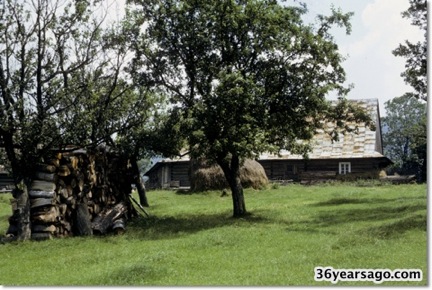
POLAND
Today, had a smaller breakfast. Bread and butter and
cocoa. I don’t think they do much farming around
here. However, this house (the sister of the husband
of Eva) is extremely nice and furnished. No water and
bathroom. But doesn’t matter.
Despite my talking about the facilities. I really
like it here. Fresh air. Farm work is healthy, also.
But, I don’t think I would be able to live here. No
music. Spoiled by civilization.
Tylawa
The big day. Finally about to see the village where
mom was born and grew up.
Well, we left. Very short distance. First saw
Michael’s house nearby and then went to Tylawa. Took
pictures of Teta Anna’s house. Beautiful countryside.
Mother’s house. It didn’t look like I thought it
would. No one was living there and so it was run
down. But the back fields directly behind the house,
where mom said she did so much as a girl, was really,
really, beautiful.
Took an awful lot of
pictures to show mom. I was really excited when
walking around. And it was so beautiful and I just
thought of my mother living there. Felt jealous.
Seemed she was lucky. With a good government it
wouldn’t be such a bad life.
This area must be the loveliest part of Poland.
Rolling hills, woods, wide fields, widely spaced
houses. Really nice. Other parts are flat and houses
are usually close together.
Met Uncle P’s father (quite old). Across the street.
But could not find any other relatives. I thought my
cousin was supposed to be here.
* I would love to bring mom here.
Young girl Maria. Really good looking, very nice and
friendly. Intelligent. Works in Tylawa as a
secretary.
Even though we had a language problem, we had a
really nice time. Last night at dinner, we sat around
and everyone drank. This afternoon, went for a nice
long walk around the area. Have a few pictures.
I really like her and will try and write and learn
Polish and see her when I return. But two years is a
long time. I’m sure things will be different. In a
way, I’m hoping she’ll be around. After another walk,
returned to eat.
Everyone always drinks a lot of schnapps. Eva’s
husband, great guy, has a lot.
I have to find the address of a teacher’s family (she
is daughter). The name is in the address book. Also
say hello and hug Eva and Roman from the three
teachers and from her husband.
Really nice family atmosphere. Little girl (Magesha)
running around. Cute. Everyone even started dancing
around in the living room.
At night, went dancing with Maria. In a hall, there
was what you might call a student club. A sizeable
group of young people there. Danced to accordion
music.
Slightly before, the same kids, mostly girls, were
part of a local “fire fighting” group. They had some
type of piece of junk fire engine. I don’t know where
they would get the water to put a fire out. I
seriously doubt how effective they could be.
Walked home. Beautiful night. Full moon over the
mountains. Said goodbye. Too short a time. Only one
day. I hope that I’ll meet her again.
REFLECTIONS
Uncle
Roman. The
husband of Teta Eva (in the U.S.) is my uncle Roman.
He was a nice guy, full of life, and joviality. He
likes to eat, drink, sing, and be happy. We stayed in
the next town in his brother’s house. I remember this
house as being a nice house similar to any western
house—except no water, and no bathroom. We take those
utilities as essential and basic. In much of the
world, even in 2009, many people still don’t have
those basics. We should be thankful.
Tylawa.
Tylawa
(pronounced Tih-yla-va) was beautiful. It is somewhat
near Krosnos and at the beginnings of the Carpathian
Mountains and near Ukraine. Although the region was
known as Lemko, the language was essentially
Ukrainian (not Polish) and the culture was also
Ukrainian. I remember the rolling hills, a winding
river, many hundreds of sheep grazing in the hills,
forests, and just a beautiful landscape. What a place
in which to grow up.
My
mother’s birthplace. Today was
the reason that I came to Poland. I wanted to see my
mother’s birthplace (see opening photo). The house,
the land, the village where she was born. My mother
came from a big family—there were 6 (or 7) girls.
Wow! The opening picture shows my mother’s house, now
unoccupied. The tin roof was rusting and the home
looked a little run down. I remember that we couldn’t
get inside—I really wanted to see the interior.
Regardless, I walked slowly around the front and the
back of the house, imagining what my mother would be
doing here as she was growing up. In the back of the
house was a beautiful vista of long, rolling hills.
Very green, and filled with nature. It was an
emotional experience. A good and welcomed experience.
One’s
heritage. Seeing the
culture, people, village, and house in which my
mother grew up was something I’ll never forget. It
made me appreciate the cultural heritage that she
passed on to my brothers and myself. One story I
remember is that she and her sisters would take the
cows and sheep and go out into the fields. I remember
she said that they owned the sliver of land behind
their house for miles and miles. After WWII, the land
was confiscated. Speaking of the war, she told me
that when the German front came through Poland, she
and her sisters ran through the woods and were
pursued by Germans, firing shots, and with dogs.
Imagine how terrifying that would be to a teenager.
We all owe our mothers, fathers, grandmothers and
grandfathers all a tremendous amount of gratitude in
raising us and giving us their heritage, language,
culture, and upbringing. We should learn more about
them. Imagine what they were like when they were
growing up as young teens with dreams as well.
Relatives
in Tylawa. My
mother and her sisters all came from Tylawa, of
course. Over time, they all emigrated to the United
States and made their lives over here. I did get to
see uncle Roman and my uncle P’s father’s house
across the street. (Sometimes I think that the stove
I pictured on Day 000 was actually from uncles
Roman’s house.) Only a few people knew or remembered
our family. In fairness, 1972 was over 20 years after
most of my relatives came to the U.S. (right after
WWII.)
Maria.
I met a
young Polish girl, Maria. She was good looking,
intelligent, very nice, and a lot of fun. She showed
me the village and what the young people were doing
in Tylawa. We danced (to accordion music) and had fun
at a local club, if you could call it that, and
enjoyed ourselves. Young people do need a place to
hang out and be together—all over the world. So, it’s
good to see that teens are teens, everywhere. I liked
Maria a lot.
I mentioned the “fire fighting” story. Maria and her
fellow girlfriends were the local volunteer fire
department for Tylawa. The fire engine was an old
horse-drawn water wagon. Wow, that’s something.
What a great day. Here are some photos of Tylawa.
Tylawa
20+ years later. When I
married my wife Olga, I visited her hometown and
family in Borislaw, Ukraine and then took her to see
Tylawa. There were significant changes. Poland was
now free and democratic. In towns, there were a lot
more buildings and lots of satellite dishes. Tylawa
now had a busy two-line highway with trucks going
through it—commerce and capitalism had arrived. My
mother’s house had burned down and someone (a
stranger) had built a new house and taken the land.
How that happened, I don’t know. My relatives didn’t
say much—perhaps, they sold the land or it was taken.
At this time, my aunt Eva and her husband Roman
retired to Tylawa and we met and stayed with them.
Tylawa itself was still beautiful.
Pictures of Tylawa:
Land behind my mother’s house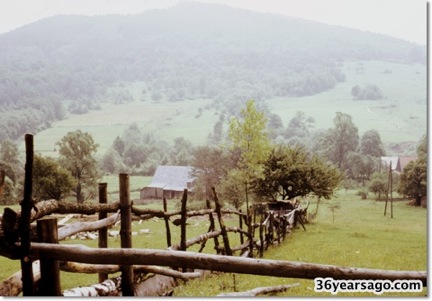
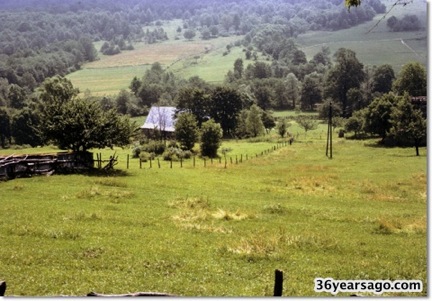
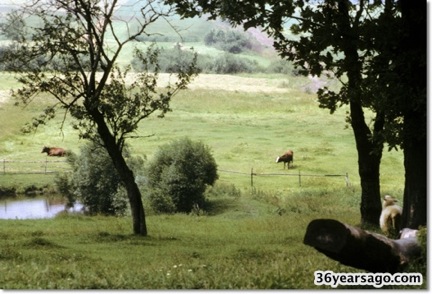
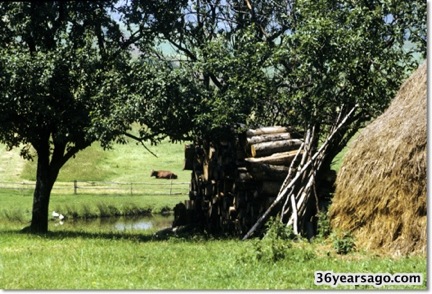
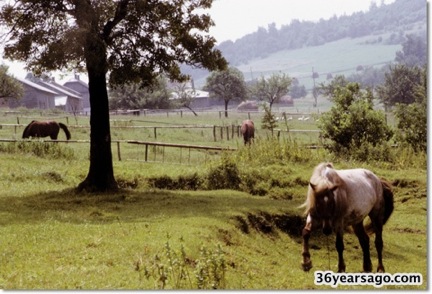
My
mother’s house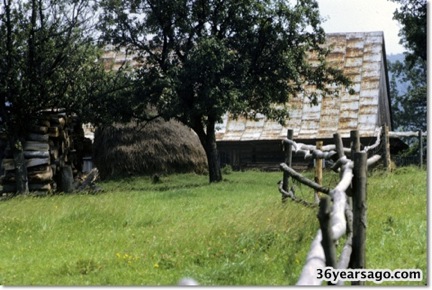
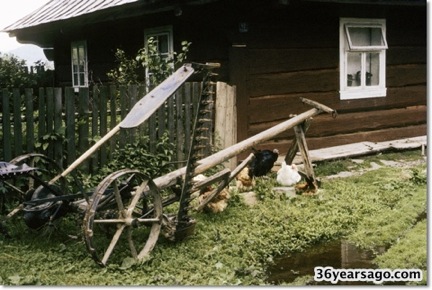
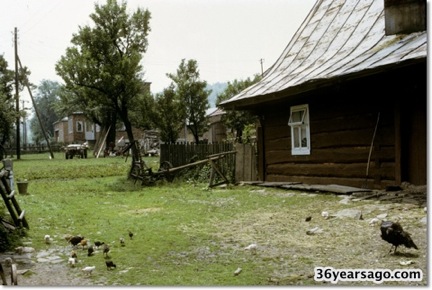
Chickens
in the hen house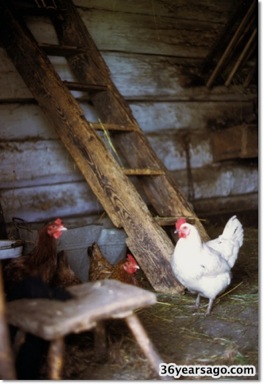
Tylawa
“Main Street”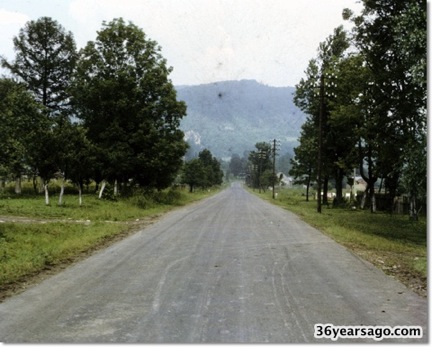
Tylawa Strip Mall ??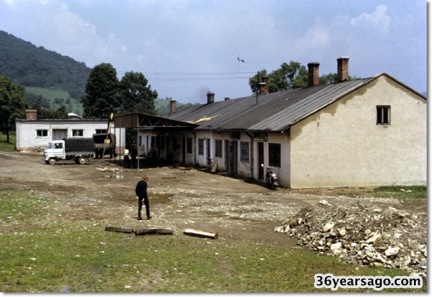
Uncle
Roman and uncle John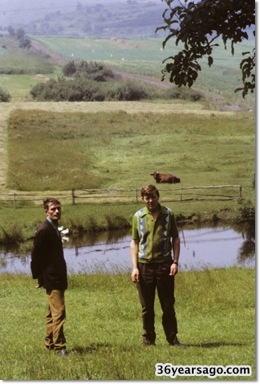
Uncle
P’s father and uncle John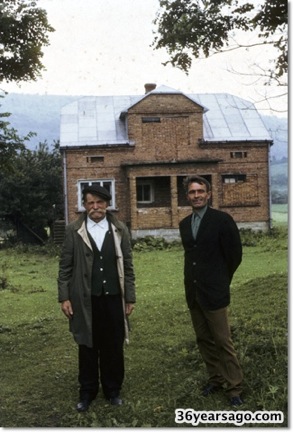
Relatives
and friends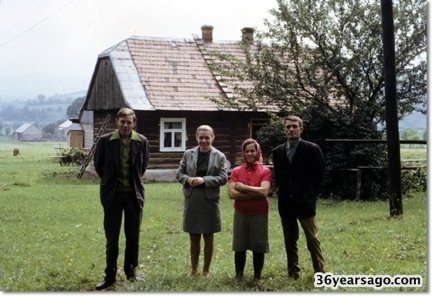
Beautiful
Tylawa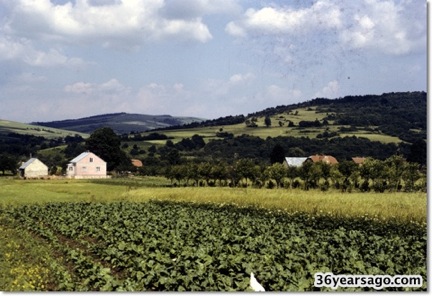
Grazing
sheep on rolling hills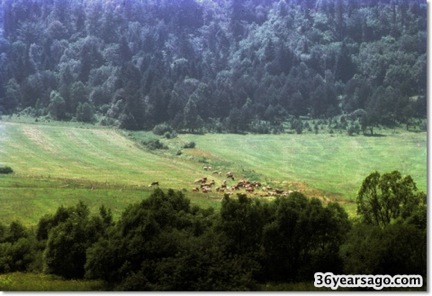
By
the river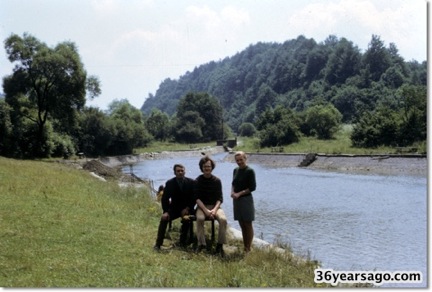
Tylawa
house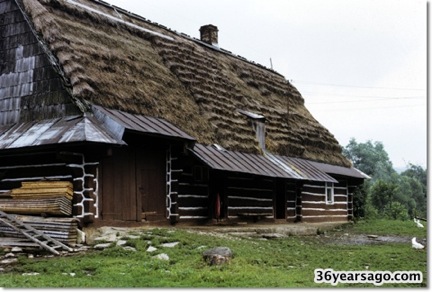
Maria

Beautiful
rolling hills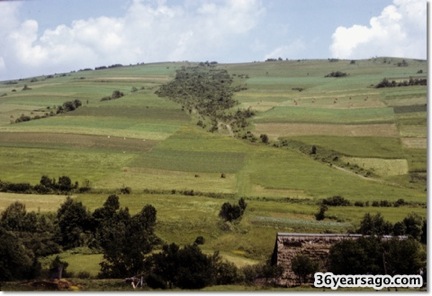
John
- - - -